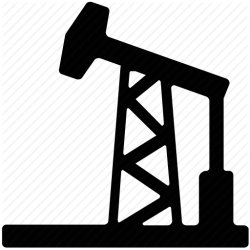Petroleum and natural gas
The use of petroleum and natural gas is very prevalent in our society today. However the use of petroleum and natural gas is not sustainable. On this blog we would explore the advantages and disadvantages of using petroleum and natural gas, their increasing demand and finding alternative sources of fuel.
Petroleum is an extremely complex mixture of hydrocarbons, which can be separated into liquid (oil) and gas fractions.
Different fossil fuels have different composition of hydrocarbons. Natural gas has a composition of over 90% hydrocarbons, of which they are mostly the smallest hydrocarbons. Oil tends to be made up of medium sized hydrocarbon molecules, however the composition varies depending on the grade.

Petroleum is used in the production of energy, plastics and many other petrochemicals. However we are mainly concerned with the use of petroleum for electricity generation.
There are 3 main technologies in which petroleum is used to generate electricity.
Conventional steam turbine where oil is burned to heat water to create steam to generate electricity.
Combustion turbine is another technology where oil is burned under pressure to produce hot exhaust gasses which then spin a giant turbine to generate electricity.
The third technology, combined cycle technology, is a combination of the first two, where the oil is burned under pressure to generate the exhaust gases to spin the first turbine. After that the exhaust gas is recovered and used to heat water in boiler, creating steam to drive the second turbine.
The combustion of hydrocarbons CxHy follows the general formula
CxHy + (x+y/4)O2 -> xCO2 + (y/2)H2O
e.g CH4 + 2O2 -> CO2 + 2H20

The problem with burning fossil fuel for generating electricity is that it is not sustainable as the oil reserves is not infinite and will run out eventually. In June 2014, BP released estimates that global oil reserves will provide us 53.3 years of oil at current production rates.
The second issue with burning fossil fuels is that it produces a lot of pollutants. The US Energy information administration estimates that to produce 293.1 kWh of electricity, 70 kg of CO2 is produced. CO2 is a greenhouse gas which contributes to global warming.

